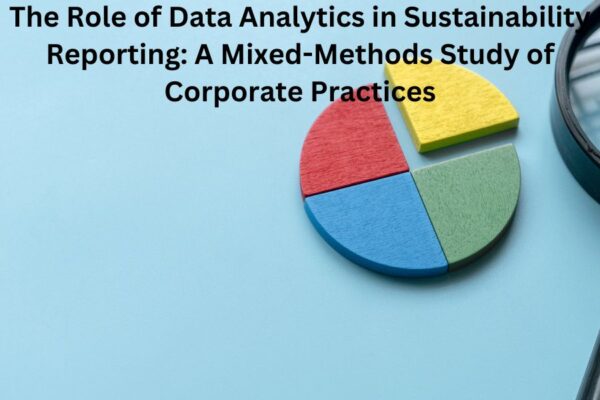Description
The Role of Data Analytics in Sustainability Reporting: A Mixed-Methods Study of Corporate Practices
Abstract
Nowadays, companies experiencing pressure to demonstrate sustainability. Data analytics is an effective tool for tracking and reporting environmental governance, and social practices. The research examines data analytics’ role in improving sustainability reporting. It also explores how companies integrate data analytics into their sustainability reporting procedures. It also investigates the effect on business practices and public perception.
A mixed method is used to deliver a clear view of understanding of the data analytics role in the non-financial reporting. The qualitative stage involves interviews with the sustainability managers, business leaders, and data analysts. These mainly explore how data analytics is implemented in practices, the faced issues, and its advantages for sustainability reporting. The quantitative stage analyzed the business sustainability data like carbon emission, waste management, and energy consumption. It also evaluates how data-driven practices reach regulatory needs and enhance sustainability outcomes.
The outcomes also highlight the growing importance of data analytics in sustainability reporting. The data-driven outcomes improve the accuracy and transparency of the business sustainability reports. It also reveals that companies also gain better tools to reach regulatory compliance and establish sustainability commitment. Data-driven methods used for the business engage with stakeholders by building accountability and trust. Moreover Challenges are related to data integration and quality, and proficiency persists. The paper underlines the need for businesses to adopt data analytics to improve their efforts for sustainability. By integrating both quantitative data and professional insights, it offers actionable recommendations. Business that adopts data analytics in sustainability reporting will improve their public gain and image a competitive advantage. The paper completes by highlighting the possibility of data analytics to make meaningful changes in sustainability practices.
Read more about the topic
View Other Projects on Sustainability








Reviews
There are no reviews yet.